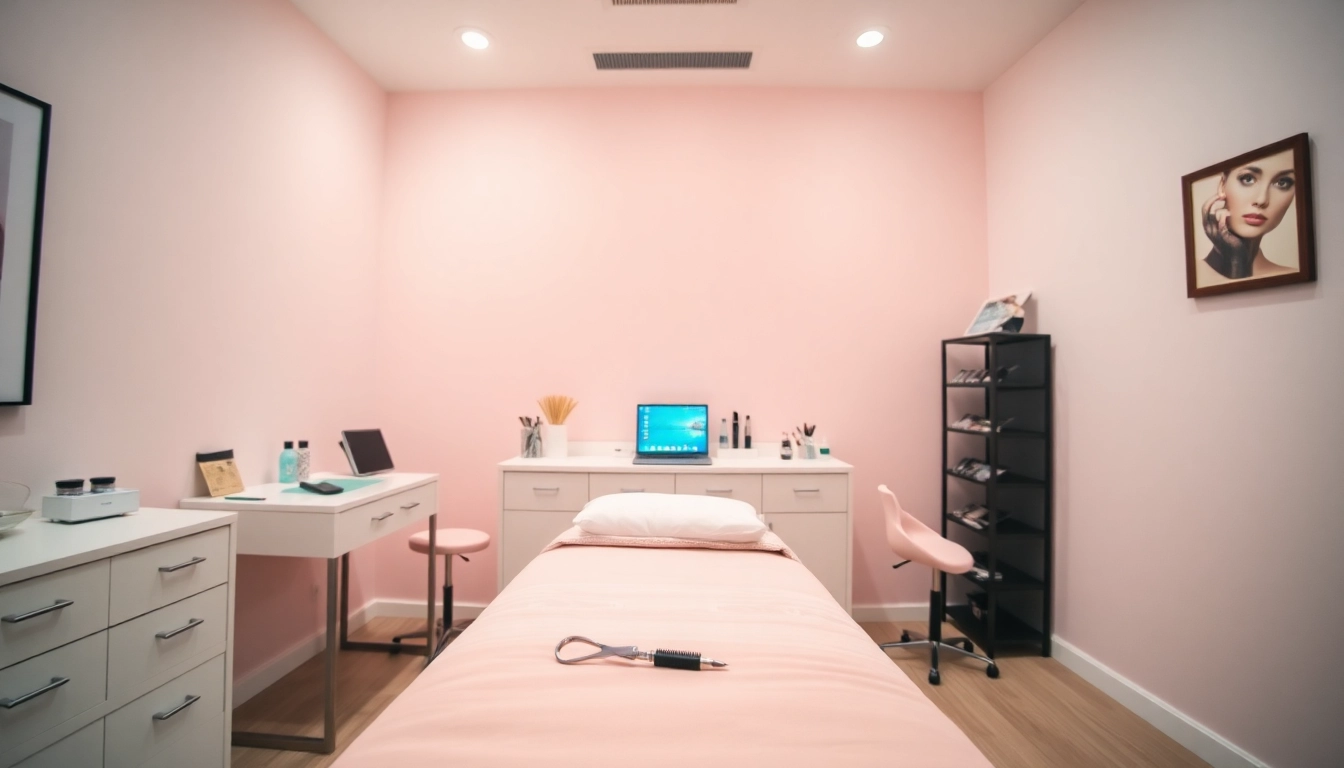Understanding Anxiety and Its Impact
Anxiety is a common yet complex mental health condition that can significantly disrupt an individual’s life. Familiarizing oneself with anxiety is crucial, especially in high-stress environments, such as Dubai. It is imperative to understand its various forms, symptoms, and the underlying causes to better address it. Awareness can pave the way for effective strategies and treatments. If you or someone you know is struggling with anxiety, exploring anxiety treatment dubai might be the first step towards improvement.
Types of Anxiety Disorders
Anxiety is not a one-size-fits-all condition. It manifests in various forms, each with distinct characteristics. Below are the most common types of anxiety disorders:
- Generalized Anxiety Disorder (GAD): Characterized by excessive worry and tension about various aspects of life, even when there is no apparent reason for concern.
- Panic Disorder: Involves recurrent panic attacks that lead to persistent anxiety about experiencing more attacks.
- Social Anxiety Disorder: A profound fear of social situations where one might be judged, criticized, or embarrassed.
- Specific Phobias: Intense fears about specific objects or situations that lead to avoidance behaviors.
- Agoraphobia: The fear of being in situations where escape might be difficult or help unavailable, often leading to avoidance of public places.
Common Symptoms and Triggers
The symptoms of anxiety can vary widely but often include:
- Restlessness or feeling wound-up
- Tiredness or fatigue
- Difficulty concentrating or mind going blank
- Irritability
- Muscle tension
- Sleep disturbances
Triggers can be equally diverse, ranging from major life changes like career transitions to daily stressors such as work deadlines or conflicts within personal relationships. Understanding one’s triggers can be pivotal in managing and mitigating anxiety effectively.
Emotional and Physical Effects
Anxiety is marked by both emotional and physical ramifications. Emotionally, individuals may experience feelings of fear, helplessness, and isolation. Physically, anxiety can manifest as headaches, gastrointestinal issues, elevated heart rate, and even chronic pain. The interplay of these symptoms can lead to a diminished quality of life, affecting relationships, work performance, and overall wellness.
Effective Therapeutic Techniques for Anxiety Treatment Dubai
Managing anxiety typically requires a multi-faceted approach tailored to individual needs. Various therapeutic techniques have been proven to facilitate recovery and improve coping mechanisms.
Cognitive Behavioral Therapy (CBT)
Cognitive Behavioral Therapy is one of the most effective treatment methods for anxiety. CBT focuses on identifying and changing negative thought patterns and behaviors that contribute to anxiety. Through structured sessions, clients learn to challenge irrational fears, develop self-awareness, and implement practical strategies for managing anxiety in real life. Research indicates a high success rate for individuals undergoing CBT, making it a cornerstone of anxiety treatments.
Mindfulness and Relaxation Strategies
Mindfulness practices, including meditation, yoga, and deep-breathing exercises, have gained traction as beneficial tools for managing anxiety. These techniques help individuals focus on the present moment, decreasing overwhelming feelings associated with anxious thoughts. Incorporating these practices into daily routines can foster a sense of calm and increase emotional resilience.
Medication Options for Anxiety
In addition to therapy, medication may be an integral part of anxiety treatment. Various categories of medications, including antidepressants and anti-anxiety medications, can help alleviate symptoms. It is essential for individuals to consult with mental health professionals to explore the most appropriate and effective options based on their specific condition and history.
Personalized Treatment Plans: What to Expect
When seeking treatment for anxiety, understanding what to expect can alleviate fears and uncertainties associated with the process. A personalized treatment plan may involve several steps.
Initial Assessment and Diagnosis
The journey begins with a comprehensive assessment by a mental health professional. This process includes detailed discussions about symptoms, medical history, and any co-occurring disorders. Through this initial diagnosis, professionals can better understand the nature of the anxiety and design an effective treatment strategy.
Setting Goals for Recovery
Setting clear, achievable goals is vital for effective treatment. Goals may range from reducing anxiety in specific situations to achieving complete symptom relief. Collaboratively establishing these goals with a therapist or psychiatrist motivates individuals and provides a roadmap toward recovery.
Monitoring Progress and Adjustments
Regular monitoring is essential for ensuring the effectiveness of the treatment plan. Therapy sessions will often include discussions on progress, setbacks, and any necessary adjustments to the approach. This ongoing dialogue allows for a dynamic treatment process that evolves with the individual’s needs.
Support Systems for Anxiety Management
Anxiety management is a lifelong journey, and support plays a critical role in achieving sustained mental well-being. Engaging with family, friends, and community resources can enhance coping strategies and reinforce recovery efforts.
Role of Family and Friends
Family and friends can be invaluable allies in navigating anxiety. Their understanding and support can alleviate feelings of isolation. Encouraging open communication about feelings and struggles can foster stronger bonds and create a supportive environment for recovery.
Support Groups and Community Resources
Peer support groups provide a unique platform for individuals with anxiety to share their experiences and coping strategies. These groups often facilitate discussions that help normalize feelings associated with anxiety, providing comfort and insights from others facing similar challenges.
Online Therapy and Telehealth Options
In recent years, online therapy has emerged as a viable option for many seeking mental health support. Telehealth allows for more accessible treatment, making it easier for individuals to attend sessions from the comfort of their homes. This flexibility can be particularly beneficial for those who may struggle with traditional in-person consultations.
Long-Term Strategies for Maintaining Mental Health
Sustaining mental health and effectively managing anxiety requires proactive long-term strategies. These practices can foster resilience and reduce the risk of relapse.
Developing Coping Mechanisms
Building effective coping mechanisms is essential for managing anxiety in everyday situations. Techniques such as journaling, physical activity, and breathing exercises can significantly cut down on overwhelming feelings. Finding what works for each individual is key, as coping strategies can vary widely based on personal preferences.
Healthy Lifestyle Adjustments
A healthy lifestyle contributes positively to mental health. Regular physical exercise, balanced nutrition, and adequate sleep are crucial elements that can mitigate anxiety symptoms. Engaging in regular self-care practices can build overall resilience and improve the quality of life.
Strategies for Relapse Prevention
Understanding and recognizing triggers that may lead to heightened anxiety is vital for relapse prevention. Developing a personal action plan that includes immediate coping strategies can help individuals navigate potential stressful situations effectively. Additionally, maintaining regular communication with healthcare professionals can ensure timely adjustments if there are any changes in mental health status.



